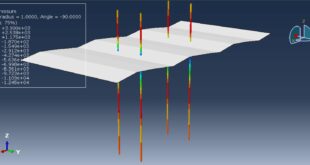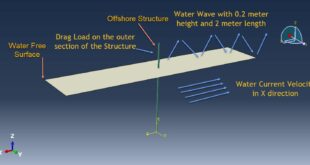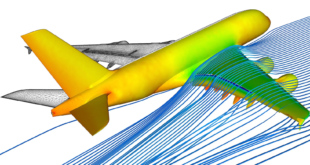In this tutorial, the numerical simulation of a reinforced foamed concrete beam containing partial cement replacement has been investigated. Construction materials using concrete is the primary building element of structures worldwide at present. The application of concrete in civil engineering is vast ranging from construction of bridges, dams to roads and tall buildings. The high demand of concrete can be attributed to its high durability, strength, moldability and relative economy compared with other traditional materials. Ever since the development of concrete, many types of concrete have been manufactured. One of them being foamed concrete. It is a type of lightweight concrete whose dry density ranges from 300 to 1800 kg/m3 which is up to 87% lighter than the normal weight concrete. Foamed concrete is prepared using cement as a binder while sand as a fine aggregate. Cement is the vital constituent of all types of concrete, which acts as a binder, binding all other ingredients together to make a strong solid stone-like material. However, the production of cement has raised an environmental concern. The concrete beam is modeled as a three-dimensional solid part. The steel bar and strip are modeled as three-dimensional wire parts. You can see figures of the assembled parts below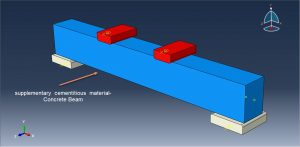
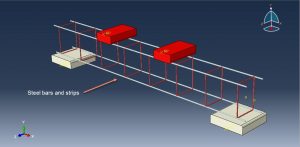
The CPD material model for the concrete beam is used. Various waste materials available for utilization in concrete as SCMs to reduce the reliance of cement as a binder, though it may take considerable time to study the performance of concrete incorporating such waste materials. In this study, a finite element model of a foamed concrete reinforced beam containing palm oil fuel ash and eggshell powder (ESP) as partial cement replacement was simulated by using ABAQUS explicit software. The steel material with elastic-plastic behavior is used for the bar and strip. The general static step with some changes in the convergence model is suitable for this simulation. The surface to surface contact between rigid bodies and concrete beam with friction coefficient is implied. The bars and strips are embedded inside the concrete beam host. The fixed boundary condition is used for the two bottom rigid bodies and displacement for the two top rigid bodies. The mesh should be fine to achieve good results
After the simulation, all results such as stress, strain, tension and compression damage of the concrete beam, force-displacement diagram,…are obtainable. you can see some figures for the results below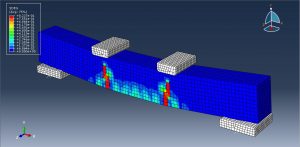
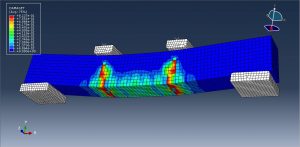
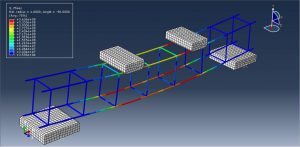
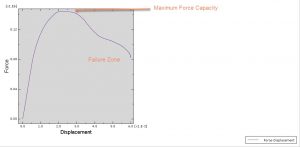
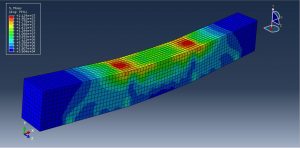
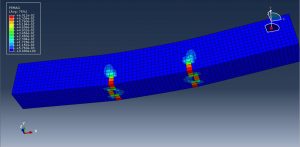
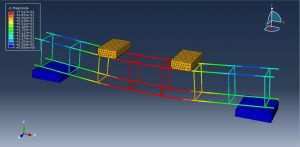
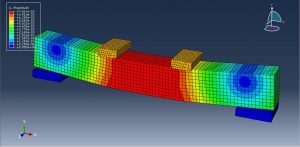
You can provide CAE ,INP,and English video files of this simulation here. The cost of these files is Twenty-Eight Euros. you can click on the bellow bottom to beginning process
You can purchase the tutorial through a PayPal account, a Visa, or a Master card, just before payment,send me an email to this address: karampourp@gmail.com
 Abaqus tutorials Abaqus tutorials
Abaqus tutorials Abaqus tutorials
